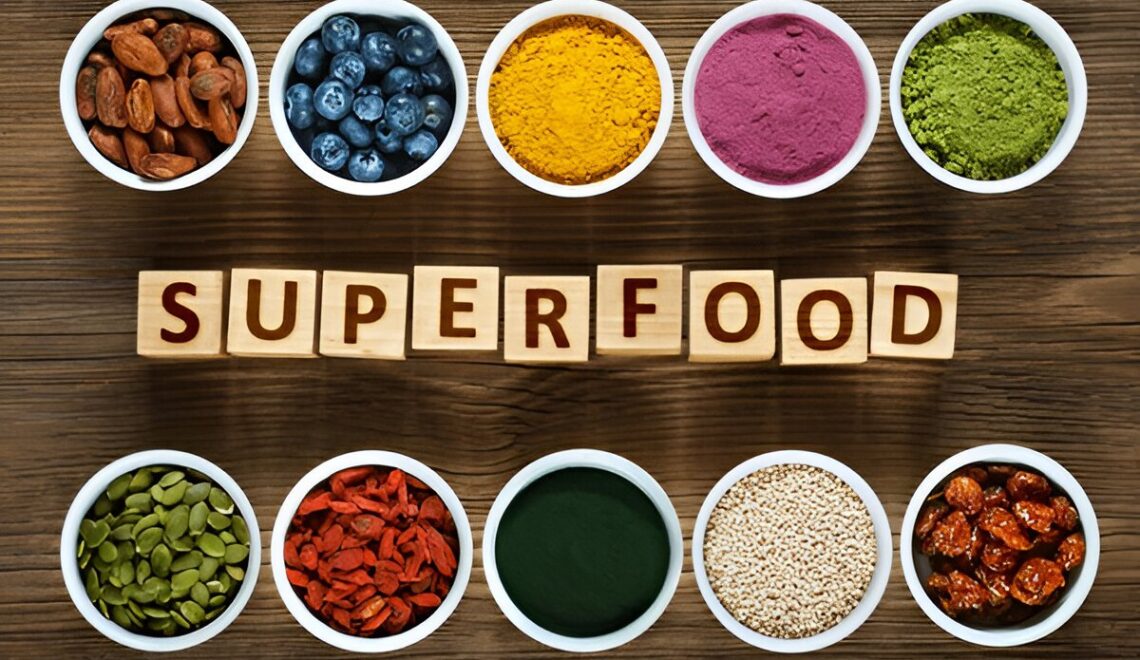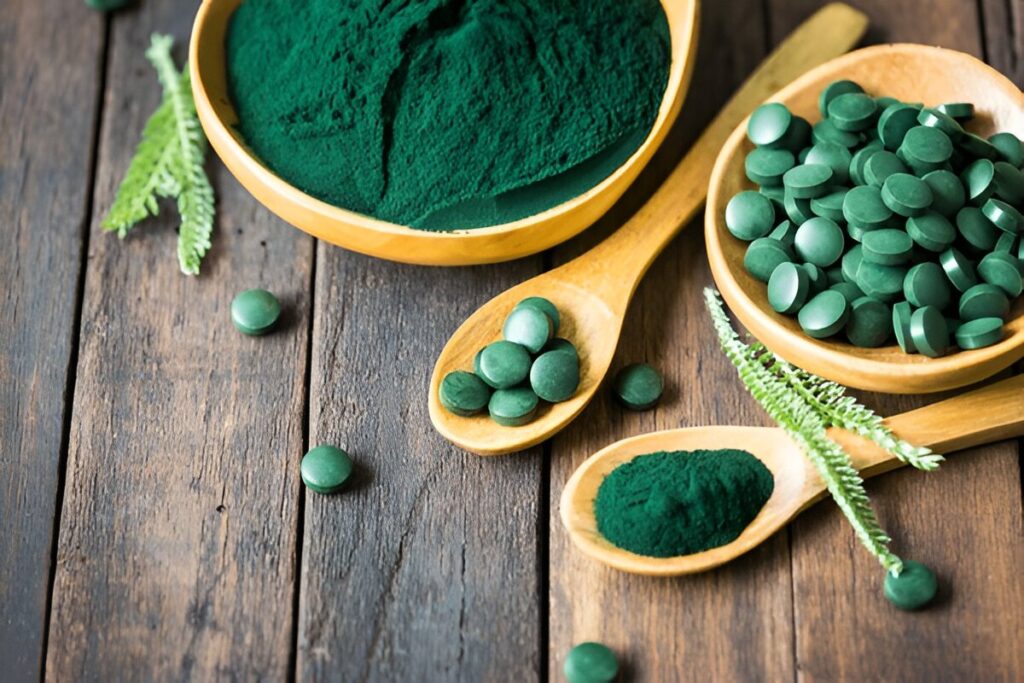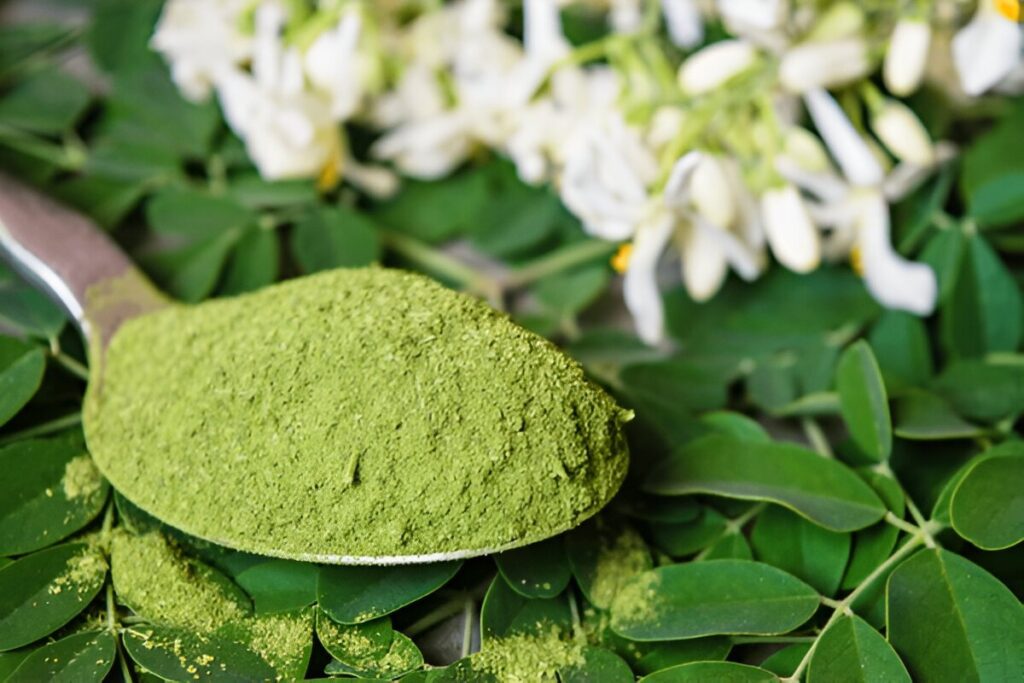Moringa vs Spirulina for Weight Loss, Skin & Energy – Which’s Better for You?

When it comes to achieving your health and wellness goals, Moringa vs Spirulina are two powerhouse superfoods that offer a wide range of benefits. Whether you’re focused on weight loss, glowing skin, or boosting energy levels, these nutrient-dense supplements are often recommended. But which one truly reigns supreme in supporting your unique needs? Let’s explore the benefits of Moringa and Spirulina to help you make an informed choice and determine what’s best for your body and lifestyle.
Moringa, often referred to as the “Miracle Tree,” is packed with vitamins, minerals, and antioxidants that support your body in multiple ways. If you’re looking to shed a few pounds, Moringa can help by regulating blood sugar levels and curbing hunger. It’s also known to help fight inflammation and support detoxification, which makes it a great addition to any weight loss regimen.
On the beauty side, Moringa’s high vitamin C content supports collagen production, giving you healthier, more youthful-looking skin. Spirulina, a blue-green algae, is a nutrient-dense superfood rich in protein, iron, and essential amino acids. This makes it a perfect choice for boosting your energy and supporting muscle recovery. If you’re looking for a natural energy boost that won’t give you the crash associated with caffeine, Spirulina is a great option.
Both Moringa and Spirulina are amazing in their own right, but they serve different purposes. If you’re aiming for weight loss, glowing skin, and sustained energy, using them together can be incredibly powerful. Imagine adding Moringa to your smoothies for an immune boost while taking Spirulina capsules to enhance energy levels throughout the day. The combination can optimize your wellness routine, giving you the best of both worlds. Whether you choose one or both, these superfoods can work wonders for your health and vitality.
Understanding Spirulina: The Nutritional Powerhouse

Spirulina, a microscopic blue-green algae, has gained recognition for its dense nutritional profile and is frequently referred to as a “superfood.” This versatile organism thrives naturally in alkaline lakes and artificial tanks under controlled cultivation. It has been utilized by numerous cultures throughout history for its ability to sustain energy and provide vital nutrients.
Packed with protein, Spirulina offers an impressive 60-70% protein content, making it one of the richest plant-based sources of protein available. The protein in Spirulina is highly digestible and contains all nine essential amino acids, which are vital for bodily functions like muscle repair, enzyme production, and cellular health. Its exceptional protein content caters to those seeking an alternative to animal-derived sources.
Spirulina’s nutritional composition surpasses expectations, providing significant amounts of vitamins and minerals. It contains high levels of Vitamin B12, particularly beneficial for vegans who may otherwise face deficiencies. Additionally, Spirulina contributes iron, calcium, magnesium, phosphorus, and potassium—all essential elements for muscle function, bone health, and energy metabolism. Its antioxidant properties are derived from beta-carotene and phycocyanin, compounds capable of neutralizing free radicals and promoting overall health.
Rich in chlorophyll, Spirulina serves as a natural detoxifier by aiding in the elimination of toxins and heavy metals from the body. Health experts frequently recommend it for its immune-boosting effects, attributed to its antioxidants and anti-inflammatory compounds. Its low-calorie yet nutrient-dense nature also allows individuals to meet dietary requirements while reducing caloric intake, supporting weight loss goals.
As a natural source of omega-6 fatty acids, Spirulina contributes to maintaining heart and brain health. This nutrient powerhouse continues to capture attention for its ability to support physical wellness, offering a streamlined pathway toward optimal nutrition for individuals pursuing holistic approaches.
Exploring Moringa: The Superfood of Ancient Traditions

Moringa oleifera, often dubbed the “Miracle Tree,” is a nutrient-rich superfood cultivated for centuries in regions like South Asia and Africa. Revered in Ayurveda and traditional medicine, this hardy plant is known for its extensive medicinal and nutritional properties. Its versatility lies in the use of its leaves, seeds, and even roots to promote health and well-being.
Nutritional Composition
Moringa is celebrated for its exceptionally dense nutrient profile. The dried leaves are a powerhouse of vitamins A, C, and E, known for their antioxidant properties. It is rich in calcium, potassium, and protein, making it particularly beneficial for muscle maintenance and bone health. Additionally, it contains iron and magnesium, essential for energy production and improved circulation. Its abundance of phytonutrients, such as flavonoids and beta-carotene, contributes to its reputation as a natural remedy for combating inflammation and oxidative stress.
Role in Weight Management
Moringa promotes weight loss through multiple mechanisms, accentuating its appeal as a superfood. With its low-calorie content, it is ideal for calorie-conscious diets and supports metabolic efficiency. This superfood contains isothiocyanates, compounds believed to assist in fat metabolism and toxin elimination. Moreover, its high fiber content aids digestion, prevents overeating by inducing satiety, and regulates blood sugar levels, discouraging fat storage caused by insulin spikes.
Ancient and Modern Applications
Traditionally, Moringa was used to improve overall vitality and treat ailments like malnutrition or digestive discomfort. Today, its popularity has surged among health-conscious individuals and researchers seeking natural solutions to lifestyle diseases. Moringa powder is commonly incorporated into smoothies, teas, baked goods, or capsules, offering a convenient and accessible way to harness its benefits.
With its roots deeply embedded in ancient traditions and its relevance in modern diets, Moringa continues to shine as a holistic weight management ally without compromising essential nutrition.
Nutritional Comparison: moringa vs spirulina

Spirulina and Moringa are both celebrated for their nutrient density and ability to support weight loss and overall wellness. However, their nutritional profiles differ substantially, making them unique in their offerings. Understanding these differences is essential for choosing the right supplement to align with one’s weight loss goals and dietary needs.
Spirulina
Spirulina is a nutrient-rich blue-green algae that is lauded for its protein content and amino acid profile.
- Protein: Spirulina boasts a protein composition of up to 60–70% by weight, and contains all essential amino acids, making it a complete protein source.
- Micronutrients: It is remarkably high in vitamins, such as B12, A, and K, along with minerals like iron, magnesium, and potassium.
- Antioxidants: Notable compounds, including phycocyanin, contribute to its antioxidant capacity, supporting the reduction of oxidative stress and inflammation.
- Caloric Content: Low in calories, spirulina provides a concentrated nutrient boost without significantly increasing caloric intake, making it appealing for weight loss plans.
- Fatty Acids: It contains omega-3 and gamma-linolenic acid (GLA), aiding in heart health and metabolism.
Moringa
Moringa, often referred to as the “Miracle Tree,” is derived from the leaves of Moringa oleifera and is a powerful source of plant-based nutrition.
- Protein: While containing less protein than spirulina, Moringa is still a valuable plant protein source.
- Micronutrients: Rich in vitamins A, C, and E, Moringa is also packed with calcium, potassium, and iron, essential for bone health and energy levels.
- Antioxidants: Its high antioxidant content—including quercetin and chlorogenic acid—bolsters cellular health and metabolism.
- Fiber: Unlike spirulina, moringa offers a hearty dose of dietary fiber, promoting digestion, satiety, and weight management.
- Caloric Content: The calorie count is similarly low, making it an excellent addition to weight-conscious diets.
Both superfoods are nutrient-dense, yet they cater to different nutritional needs. Spirulina excels in protein and amino acids, while Moringa shines with fiber and versatile vitamins.
How Spirulina Supports Weight Loss Goals
Spirulina, a nutrient-dense blue-green algae, has garnered attention for its potential to support weight loss goals through its unique nutritional properties. Its high protein content plays a pivotal role in promoting satiety, reducing unnecessary snacking, and managing overall calorie intake. Protein stimulates the production of hormones like GLP-1, which help the body feel full and satisfied, making it easier to maintain a calorie deficit—a key factor in weight loss.
Additionally, spirulina contains essential amino acids that not only support muscle repair and growth but also enhance metabolism. A more efficient metabolism burns calories at a faster rate, aiding in weight loss efforts. Unlike many conventional weight loss supplements that rely on artificial chemicals, spirulina provides natural support, minimizing risks associated with long-term use.
Another benefit lies in its low-calorie density, meaning individuals can consume this supplement without significantly adding to their daily calorie count. Its rich nutritional profile ensures valuable vitamins like B12 and minerals such as iron are supplied to the body, supporting energy levels and reducing fatigue often experienced while dieting. The result is a more sustainable approach to weight management.
Spirulina’s role in detoxification should not be overlooked, as its antioxidants combat oxidative stress and help eliminate toxins. These processes contribute to overall well-being, enabling individuals to focus on achieving their weight loss goals effectively. Furthermore, the inclusion of spirulina in a balanced diet complements other healthful habits, such as regular exercise and mindful eating.
Consistency and proper dosage are essential when incorporating spirulina into a routine for weight management. It is recommended to seek advice from a healthcare professional to determine appropriate intake levels aligned with individual health conditions. Achieving weight loss goals depends as much on lifestyle choices as on dietary supplementation, making spirulina a valuable ally for anyone pursuing a healthier weight.
The Role of Moringa in Promoting Healthy Weight Management
Moringa, often referred to as the “miracle tree,” offers a unique set of attributes that contribute to weight management and overall well-being. Packed with essential nutrients, antioxidants, and anti-inflammatory compounds, this plant has gained recognition in health and wellness practices. Its natural chemical composition plays a key role in aiding individuals seeking healthier weight standards.
Moringa is rich in fiber, which aids digestion and supports weight management by promoting a feeling of fullness and reducing overeating. Dietary fiber is critical to regulating bowel movements and enhancing gut health, providing a foundation for consistent metabolism functioning. Additionally, the fiber content may help minimize cravings, further enabling individuals to maintain better calorie control throughout the day.
The nutrients in moringa also contribute significantly to energy metabolism. High levels of vitamin B-complex compounds, including B1, B2, and B3, improve the body’s ability to convert food into energy efficiently. This ability ensures that main metabolic pathways remain active, promoting fat breakdown and reducing the accumulation of unnecessary weight. By optimizing energy utilization, individuals may enhance their physical activity levels, which are critical for successful weight-loss efforts.
Moringa is noted for its potent antioxidants such as chlorogenic acid and quercetin, which help combat oxidative stress. Oxidative stress can impair metabolism and hinder weight-loss objectives. The anti-inflammatory properties of moringa further benefit individuals by reducing inflammation-related challenges that might disrupt balance in the body’s systems, including regulatory processes that control fat loss.
Moreover, moringa contains a modest amount of protein, which is beneficial for preserving lean muscle mass during weight-loss journeys. Having adequate protein intake is essential for preventing muscle degradation, ensuring that individuals lose weight in the form of fat rather than muscle.
With its nutrient profile and complementary mechanisms, moringa serves as a natural, plant-based option for those striving to achieve and maintain healthy weight goals.
Best Moringa Powder/Capsules
Organic India Moringa Powder
Description: This organic, nutrient-rich Moringa powder is packed with antioxidants, vitamins, and minerals. It’s perfect for boosting energy, improving digestion, and supporting overall health. The powder is easy to add to smoothies, juices, or even water.
Moringa Magic Organic Superfood Powder
- USDA Certified Organic
- 100% pure dried leaf – no stems or fillers
- Lab-tested for nutrient density
Best Spirulina Supplements:
Earthrise Spirulina Natural Powder
Earthrise Spirulina is a highly concentrated, nutrient-dense superfood packed with protein, vitamins, and minerals. This powder can be added to smoothies, shakes, and food to boost energy, support immune health, and improve skin health.
Scientific Studies and Evidence: moringa vs spirulina for Weight Loss
A growing body of scientific research has examined the potential of Spirulina and Moringa as effective aids in weight loss and metabolic health. These plant-based superfoods have demonstrated unique bioactive components that may contribute to weight management through various mechanisms.
Spirulina’s Weight Loss Evidence
Spirulina, a type of cyanobacteria, is widely studied for its nutritional profile and its implications for weight loss. Researchers have found Spirulina to be rich in proteins, vitamins, and minerals, making it ideal for promoting satiety. High protein content can reduce hunger and increase energy expenditure, which are critical components of effective weight management. Furthermore, studies suggest that Spirulina may regulate blood sugar levels, reducing spikes that can lead to increased fat storage and overeating.
A 2016 study published in “Nutrition and Metabolism” demonstrated Spirulina’s ability to improve lipid profiles and support fat oxidation, particularly when combined with exercise. Additionally, its antioxidant properties may reduce inflammation, a contributor to obesity-related complications. Emerging evidence suggests that Spirulina could positively affect appetite-control hormones such as ghrelin and leptin, further implicating its role in weight management.
Moringa’s Weight Loss Evidence
Moringa oleifera, often referred to as the “drumstick tree,” has gained attention for its weight-loss potential. Packed with polyphenols, vitamin C, and plant-based compounds, Moringa offers a wealth of benefits for metabolic health. Research indicates that Moringa can improve digestive processes, enabling better nutrient absorption and reducing fat accumulation. Its thermogenic properties may enhance calorie burning during activities, contributing to a sustained weight loss effect.
In addition, studies have explored Moringa’s impact on insulin sensitivity, identifying its role in stabilizing blood sugar levels and preventing excessive fat storage. A 2014 study published in “BioMed Research International” highlighted Moringa’s ability to regulate adipogenesis, the process by which fat cells are formed, showcasing its potential effectiveness for long-term weight control strategies.
Interpreting the Findings
Scientific studies on these superfoods emphasize their promising roles in weight management when incorporated into balanced diets and exercise regimens. However, ongoing research remains necessary to deepen understanding and establish definitive guidelines. Both Spirulina and Moringa exhibit unique metabolic benefits that align with weight loss goals.
Practical Applications: Incorporating moringa vs spirulina into Your Diet
Incorporating spirulina and moringa into daily dietary routines can be achieved effortlessly with proper planning and an understanding of their versatility. Both superfoods can be introduced in multiple forms, catering to individual preferences and nutritional goals.
Spirulina Integration Techniques
Spirulina, often available as powder or tablets, blends seamlessly into a variety of recipes. Its slightly savory taste pairs well with certain foods and beverages. For effective incorporation:
- Smoothies and Shakes: A teaspoon of spirulina powder can be mixed into fruit smoothies or protein shakes, delivering a burst of nutrients without overwhelming the flavor profile.
- Green Juices: Adding spirulina to fresh juices enhances antioxidant intake and supports detoxification goals.
- Baking Recipes: It can be included in recipes for homemade energy bars, muffins, or crackers to enrich snacks with essential amino acids and chlorophyll.
- Soups and Sauces: Spirulina can be stirred into soups or sauces, adding color and an additional layer of nutrients.
Moringa Utilization Methods
Moringa is cherished for its mild, earthy taste, making it adaptable to a variety of culinary contexts. It is generally available as powder, capsules, or fresh leaves. Common approaches include:
- Teas: Brewing moringa leaves or powder into hot water creates an antioxidant-rich tea that aids metabolic processes.
- Salads: Fresh moringa leaves can be tossed into salads to deliver additional fiber while enhancing the dish’s nutritional profile.
- Seasoning: Moringa powder can be sprinkled over cooked vegetables, rice, or pasta as a seasoning.
- Soup and Curries: Fresh or powdered moringa is a nutrient-packed addition to vegetable soups and curries.
Combined Usage
For individuals eager to leverage the complementary benefits of spirulina and moringa, it is feasible to integrate them into the same meal. For instance, moringa tea can accompany protein-rich spirulina bowls, creating a synergistic combination that supports weight management goals. When experimenting, attention should be paid to portion sizes, especially for those new to these superfoods, as excessive consumption may lead to taste aversion or mild digestive discomfort.
By exploring the diverse ways to use spirulina and moringa, individuals can seamlessly incorporate these nutrient-dense superfoods into their diets without sacrificing flavor or convenience.
Potential Side Effects and Precautions of moringa vs spirulina
Both spirulina and moringa are highly regarded for their nutritional properties, but individuals should be aware of potential side effects and precautions before incorporating them into their diet. Understanding these factors is essential for safe consumption.
Common Side Effects
- Spirulina:
- Digestive issues such as bloating, gas, or mild stomach discomfort may occur in some individuals when first consuming spirulina.
- Allergic reactions, although rare, can arise, typically manifesting as itching or rash. Individuals with a sensitivity to algae should exercise caution.
- High doses of spirulina may lead to headaches, dizziness, or even minor fatigue due to its detoxifying properties.
- Those with phenylketonuria (PKU) should avoid spirulina, as it contains phenylalanine, an amino acid that may exacerbate symptoms in people with this condition.
- Moringa:
- Mild gastrointestinal problems such as diarrhea or nausea can occur if consumed in large quantities.
- Moringa may interact with certain medications, particularly those for hypertension or thyroid disorders.
- Pregnant individuals should use moringa cautiously, as compounds in its roots, flowers, and bark may lead to uterine contractions.
Specific Precautions
- Medical Conditions: People with autoimmune diseases should avoid spirulina, as it can stimulate the immune system and worsen symptoms. Moringa may need to be avoided by individuals with liver or kidney disease without medical advice.
- Sourcing and Quality: Only high-quality spirulina and moringa supplements from reputable brands should be used to avoid contamination with heavy metals or toxins.
- Dosage Control: Moderation is crucial. Exceeding recommended doses can amplify potential side effects.
- Consultation with Healthcare Professionals: Always seek advice from a qualified medical professional before starting spirulina or moringa supplements, especially if taking medication, pregnant, or nursing.
While these superfoods offer significant health benefits, individual responses can vary. Proper guidance and careful use help mitigate risks and optimize their advantages.
Choosing the Right Superfood for Your Weight Loss Journey
Selecting between spirulina and moringa for weight loss requires a clear understanding of their respective nutritional profiles, benefits, and applications. Each superfood offers unique attributes, catering to different dietary preferences, metabolism types, and health needs.
Understanding Spirulina
Spirulina, a blue-green algae, is rich in protein, antioxidants, and essential amino acids, amplifying its appeal to those following a plant-based diet. Its high protein content helps support muscle repair and promotes satiety, reducing the temptation to overeat. Spirulina also contains phycocyanin, a bioactive compound known for its anti-inflammatory and fat metabolism-boosting properties, which may aid in burning more calories.
It is typically consumed in powdered or supplement form and easily blends into smoothies, juices, or energy bars. Because of its potent flavor, mixing spirulina with naturally sweet ingredients helps balance the taste. People with iodine sensitivities or conditions like hypothyroidism should consult a healthcare provider before use, given spirulina’s potential impact on thyroid function.
Exploring Moringa
Moringa, derived from the Moringa oleifera tree, is rich in vitamins, minerals, and polyphenols. Known as a “nutrient powerhouse,” moringa provides B vitamins that enhance energy levels and optimize fat metabolism. Its high fiber content supports healthy digestion, reduces bloating, and promotes feelings of fullness, all crucial factors in weight management.
Moringa is versatile; it can be brewed into tea, blended into smoothies, or added to soups. Its mild, slightly earthy flavor makes it more approachable for individuals sensitive to stronger-tasting superfoods. While safe for most people, regular consumption may interact with medications, such as blood pressure or diabetes treatments, necessitating expert guidance.
Factors to Consider
When deciding between spirulina and moringa, consider dietary restrictions, flavor preferences, and specific health goals. For those prioritizing protein intake, spirulina might be more suitable. Meanwhile, moringa stands out for its comprehensive nutrient profile and digestive benefits. Both superfoods enhance weight loss efforts when complemented by a balanced diet and consistent physical activity.
Conclusion: moringa vs spirulina
In the pursuit of weight loss, incorporating nutrient-dense options like spirulina and moringa can bring substantial benefits to the table. Spirulina, with its high protein content and ability to support appetite control, serves as a functional food for individuals aiming to reduce calorie intake while maintaining energy. Moringa, on the other hand, is enriched with antioxidants, essential vitamins, and fiber, contributing to digestive health and metabolic regulation.
Both superfoods exhibit complementary qualities that can enhance dietary practices when integrated thoughtfully. Spirulina’s chlorophyll and essential amino acids aid in detoxification and muscle preservation during fat loss, while moringa’s blend of polyphenols and bioactive compounds reduces inflammation and oxidative stress. Together, they contribute to a holistic approach to weight management.
Sustainable weight loss practices cannot rely solely on the inclusion of specific foods but require a strategic combination of balanced nutrition, regular physical activity, and mindful lifestyle choices. These two superfoods have the potential to amplify the effectiveness of personalized plans when used responsibly and in moderation.
Key factors such as individual health needs, dietary preferences, and caloric requirements should always guide decisions when selecting between spirulina and moringa or incorporating both. In every scenario, professional advice from a healthcare provider or nutritionist remains invaluable.
The emphasis should remain on developing a sustainable and adaptable mindset toward health. Whether through spirulina, moringa, or other nutrient-rich foods, the ability to make informed and consistent choices sets the foundation for long-term success. Supporting these decisions with education and awareness ensures that the weight loss journey becomes a rewarding and empowering experience.
